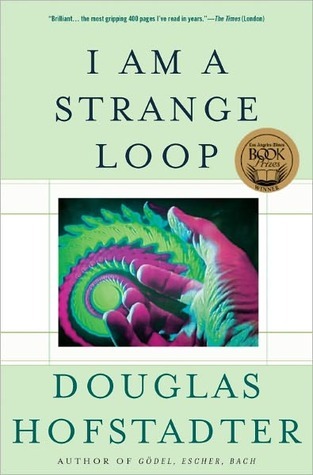More on this book
Community
Kindle Notes & Highlights
some six decades later, the young mathematician Greg Chaitin, inspired by Berry’s idea, dreamt up a more precise cousin using computer programs instead of English-language descriptions, and this clever shift turned out to yield a radically new proof of, and perspective on, Gödel’s 1931 theorem. From there, Chaitin and others went on to develop an important new branch of mathematics known as “algorithmic information theory”.
Ernest Nagel and James R. Newman’s little gem, Gödel’s Proof,
For instance, suppose that the (arbitrary) code number for the symbol “0” is 2, and the code number for the symbol “=” is 6. Then for the three symbols in the very simple formula “0=0”, the code numbers are 2, 6, 2, and these three numbers are used as exponents for the first three prime numbers (2, 3, and 5) as follows: 22 · 36 · 52 = 72900
Roger Sperry (a later idol of mine whose writings, had I but read and understood them in first grade, might have inspired me to stand up and bravely proclaim to my classmates, “I can philosophize just like Roger Sperry!”)
when a pianist friend praised Béla Bartók’s second violin concerto
one of the most stirring pieces of music I knew — Prokofiev’s third piano concerto.
there is no piece of music in the world that means more to me than Prokofiev’s first violin concerto,
“I at the Center”: Here one sees a metaphorical individual at the center, whose shape (the letter “I”)
movie David and Lisa
if I see one last tortilla chip lying in a basket about to be thrown away, I might think, “Oh, you lucky chip! If I eat you, then your lifeless molecules, if they are fortunate enough to be carried by my bloodstream up to my brain and to settle there, will get to enjoy the experience of being me! And so I must devour you, in order not to deprive your inert molecules of the chance to enjoy the experience of being human!”
James Falen’s lovely, lilting, and lyrical English transplantation of Pushkin’s novel-in-verse Eugene Onegin
When the sun is eclipsed, there remains a corona surrounding it, a circumferential glow. When someone dies, they leave a glowing corona behind them, an afterglow in the souls of those who were close to them.
a paragraph from the novel The Heart Is a Lonely Hunter by Carson McCullers, with which I conclude this chapter. Late the next morning he sat sewing in the room upstairs. Why? Why was it that in cases of real love the one who is left does not more often follow the beloved by suicide? Only because the living must bury the dead? Because of the measured rites that must be fulfilled after a death? Because it is as though the one who is left steps for a time upon a stage and each second swells to an unlimited amount of time and he is watched by many eyes? Because there is a function he must carry
...more
There is only one person. This extreme view, although less commonly advocated, has its modern proponents, such as philosopher Daniel Kolak in his recent book I Am You.
In fact, that’s the main business of human brains — to take a complex situation and to put one’s finger on what matters in it, to distill from an initial welter of sensations and ideas what a situation really is all about.
the path-breaking book Reasons and Persons by the Oxford philosopher Derek Parfit.
gentle people such as Mohandas Gandhi, Eleanor Roosevelt, Raoul Wallenberg, Jean Moulin, Mother Teresa, Martin Luther King, and César Chávez — extraordinary individuals whose deep empathy for those who suffer leads them to devote a large part of their lives to helping others, and to doing so in nonviolent fashions.
one of the most profound of all the Bach organ fugues — the G minor fugue often called simply “The Great” (BWV 542), a work that I loved as played by Albert Schweitzer
I began with the prelude and fugue in A major (BWV 536, nicknamed by Schweitzer the “walking fugue”) and went through many others, winding up with my very favorite, the beatific prelude and fugue in G major (BWV 541), and then as a final touch, I listened to the achingly sweet–sad chorale-prelude “Alle Menschen Müssen Sterben” (“We All Must Die” — or perhaps, in order to echo the trochaic meter of the German, “Human Beings All Are Mortal”).
In short, only when generosity is born is an ego born.
But our glory as human beings is that, thanks to being beings with brains complicated enough to allow us to have friends and to feel love, we get the bonus of experiencing the vast world around us, which is to say, we get consciousness.


